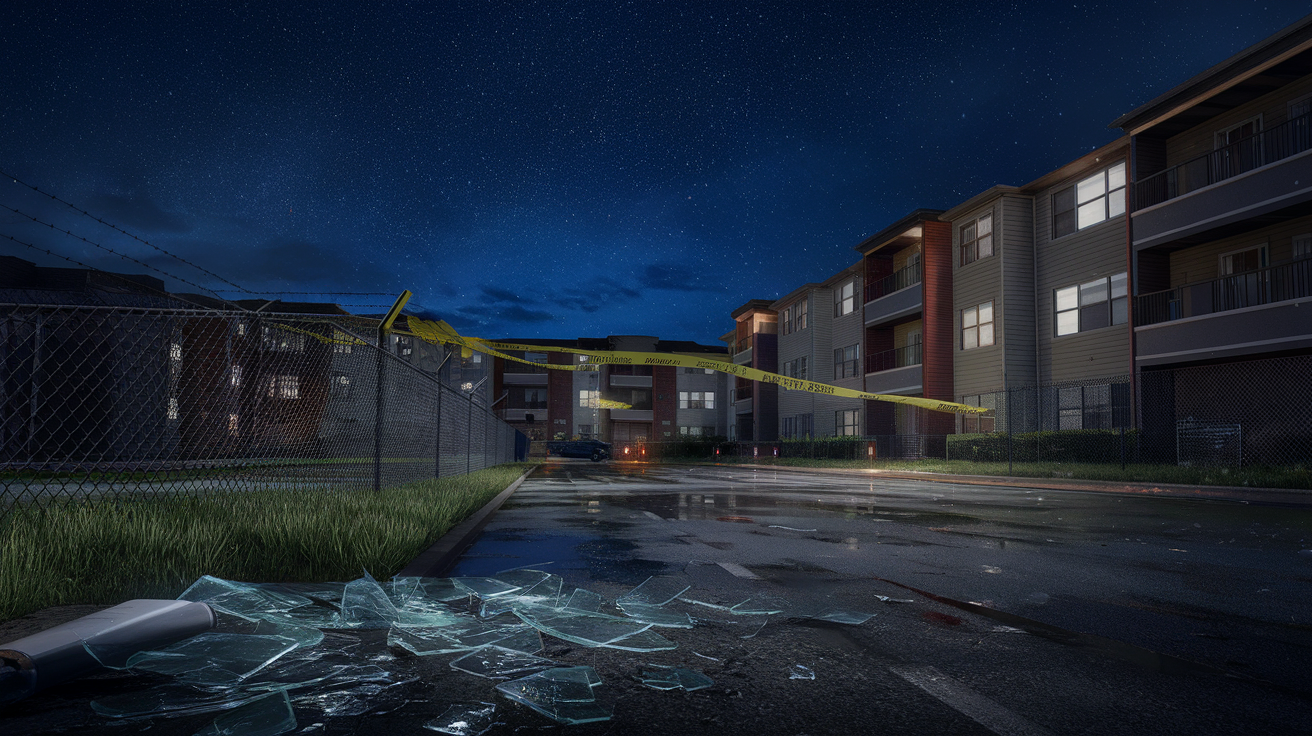In the quiet hours before dawn, chaos erupted outside a bustling apartment complex in Fort Worth, Texas. Three people were rushed to the hospital after a shooting that left the neighborhood on edge.
Among them, 28-year-old mechanic Alex Rivera clings to life in critical condition, while his friends, teacher Maria Lopez and student Carlos Mendoza, recover from less severe wounds.
Fort Worth police acted fast, arresting 32-year-old suspect Jamal Thompson at the scene. "We're piecing together what happened," said Detective Laura Chen in a morning briefing. The motive? Still a mystery, as investigators sift through witness accounts and security footage.
The incident unfolded around 2 a.m. on September 4, 2025, according to reports from WFAA News. Neighbors described hearing sharp pops, like fireworks gone wrong, followed by screams and flashing lights.
"It was scary," shared resident Elena Vasquez, who peeked out her window to see paramedics working frantically. This isn't just a one-off event; it's part of a troubling pattern.
City crime stats from the Fort Worth Police Department show violent incidents up 15 percent this year, mirroring national trends tracked by the FBI. Urban areas like Fort Worth are grappling with more shootings, often tied to disputes that escalate quickly.
Stories like this pull at the heartstrings, reminding us of everyday folks caught in the crossfire. Alex, known for fixing cars in his spare time, was just hanging out with friends.
Maria teaches kids at a local elementary school, and Carlos dreams of becoming a doctor. Their lives changed in an instant, sparking outrage and fear among locals. Community leaders, including Pastor Elena Ramirez from a nearby church, call it a wake-up call.
"We can't keep living like this," she said. But here's where things get heated: Some blame easy access to guns, pointing to lax laws in Texas that allow open carry. Others say it's about deeper issues, like economic stress pushing people to the brink.
Experts add weight to the debate. Criminologist Dr. Michael Torres from the University of Texas notes, "Shootings often stem from untreated mental health problems or poverty."
His research, published in the Journal of Urban Safety, shows that cities investing in counseling and job programs see crime drop. On the flip side, law enforcement advocates like retired officer David Kim argue for more patrols.
"Boots on the ground save lives," he says, citing successful crackdowns in other states. National groups such as Everytown for Gun Safety highlight how background checks could prevent tragedies, while the NRA pushes for self-defense rights.
This shooting forces a tough question: In the face of rising violence, should we fund more police presence to deter crime, or invest in social programs that address why people turn to guns in the first place? The divide is clear, with online forums buzzing.
Some demand stricter controls to protect innocents, while others fear that erodes personal freedoms. As Fort Worth heals, residents like Elena hope for answers that bring real change, not just headlines.
The city stands at a crossroads, where safety hangs in the balance.

